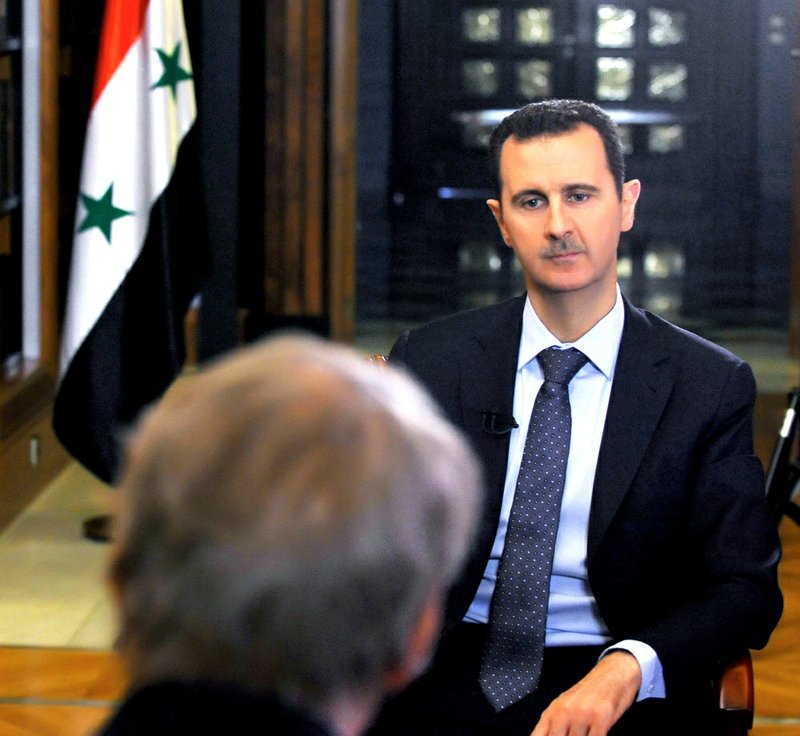WASHINGTON — Pushing military might and raising hopes it won't be needed, President Barack Obama on Tuesday threw his support behind a plan for U.N. Security Council talks aimed at securing Syria's chemical weapons stockpiles, even as he continued to advance the fallback idea of U.S. airstrikes against Bashar Assad's regime.
Seizing on that two-track strategy, a bipartisan group of senators crafted a reworked congressional resolution calling for a U.N. team to remove the chemical weapons by a set deadline and authorizing military action if that doesn't happen.
Obama discussed plans for U.N. action with French President Francois Hollande and British Prime Minister David Cameron, then visited Capitol Hill to talk through diplomatic and military options with Democratic and Republican senators growing increasingly wary of U.S. military intervention. He was poised to address the American people from the White House on Tuesday night, still ready to press the case for congress-approved military action if diplomacy falls short.
"The key is, to paraphrase Ronald Reagan, that we don't just trust, but we also verify," Obama said in an interview with CBS. "The importance is to make sure that the international community has confidence that these chemical weapons are under control, that they are not being used, that potentially they are removed from Syria and that they are destroyed."
Prospects for a diplomatic breakthrough unfolded rapidly Tuesday: Assad's government accepted a Russia-advanced plan to turn over its chemical weapons stockpile. France pitched a U.N. Security Council resolution to verify the disarmament. The U.N. Security Council, at Russia's request, scheduled closed consultations for late afternoon. Syria's foreign minister said the nation would declare its chemical weapons arsenal and sign an international chemical weapons treaty.
Secretary of State John Kerry said Obama, Holland and Cameron agreed to work closely together in consultation with Russia and China to explore the Russian proposal to put all Syrian chemical weapons "under the control of a verifiable destruction enforcement mechanism."
The path forward was far from certain, however. Russian President Vladimir Putin said the U.S. would need to renounce the use of force against Syria because no country will disarm under threat of military action.
He told reporters that the plan "can work, only in the event that we hear that the American side and those who support the U.S.A., in this sense, reject the use of force."
Kerry countered that any deal with Syria to give up its chemical weapons must be enshrined in a binding U.N. Security Council resolution that sets consequences for Syrian non-compliance. He said Russian suggestions that the U.N. endorsement come in the form of a non-binding statement from the rotating president of the Security Council would be unacceptable to the Obama administration.
Read tomorrow's Arkansas Democrat-Gazette for full details.
IN TODAY'S EDITIONS
- http://www.arkansas…">Obama sees 'possible' exit on Syria raid
- http://www.arkansas…">Arkansans to 5 of theirs in Congress: No Syria hit
25148826

